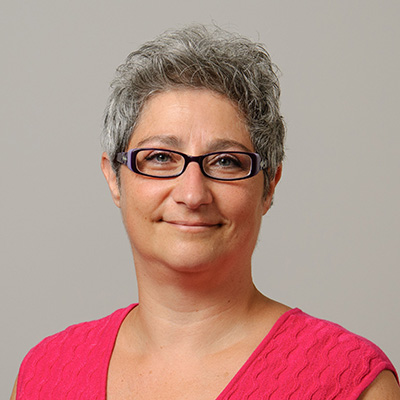Marie Coppola
Professor
Psychological Sciences and Linguistics
Education
Ph.D., 2002, University of Rochester
Research Interests
Dr. Coppola studies language acquisition and language creation as well as the relationship between language and cognition, as revealed by D/deaf individuals who vary in their experience with language. She is particularly interested in how early exposure to language fosters typical development in numerical cognition. She has conducted the most extensive studies to date of homesign language systems used into adulthood. Interests include:
- Language emergence
- Homesign
- Cognitive development
- Sign language structure
- Language acquisition
- Language Creation Lab (Research)
- Study of Language and Math (Research)
- Signs and Smiles (Non-profit Organization)
Research Funding (selected)
US National Science Foundation (Linguistics)
Collaborative Research: The conceptualization of events in users of Homesign and Nicaraguan Sign Language (2022-2025, #2116180)
US National Science Foundation (Linguistics)
Two-verb predicates in sign languages: Typological variation and emergence (2019-2024, #1918545)
US National Science Foundation (Education and Human Resources, Linguistics)
CAREER: The impact of language experience on the development of number representations in deaf, hard of hearing, and hearing children (2016-2021, #1553589)
Teaching
- PSYC 2400. Developmental Psychology
- PSYC 3470. Modality Issues in Development (Current Topics in Developmental Psychology)
- PSYC 5440. Development of Language and Related Processes
- PSYC 5441. Language Modality, Neural Plasticity, and Development
Publications
(g), (u), and (pb) indicate graduate, undergraduate, and post-baccalaureate students receiving substantial mentorship
Recent
Quam, M. (g), E. Carrigan, A. Shusterman, K. Walker (pb), and M. Coppola. (2025). Delayed first language exposure negatively impacts representation of small quantities: Evidence from Deaf and Hard-of-Hearing children. Open Mind: Discoveries in Cognitive Science, 9, 1657-1681. https://doi.org/10.1162/OPMI.a.32
Coppola, M., and K. Walker (pb). (2025). Early language access and STEAM Education: Keys to optimal outcomes for Deaf and Hard of Hearing students. Ed ucation Sciences 15(7), 915. https://doi.org/10.3390/educsci15070915
Lee, B., K. Secora, D. Smith, and M. Coppola. (2025). Expert consensus on the role of speech-language pathologists in working with Deaf children who use American Sign Language: A modified Delphi study. A merican Journal of Speech-Language Pathology, 34(3), 1219-1255. https://doi.org/10.1044/2025_AJSLP-24-00298
Coppola, M. (2024). Homesign research, gesture studies, and sign language linguistics: The bigger picture of homesign and homesigners. Topics in Cognitive Science. https://doi.org/10.1111/tops.12766
Walker, K. (pb), E. Carrigan, and M. Coppola. (2023). Early access to language supports number mapping skills in deaf children. Journal of Deaf Studies and Deaf Education 29(3), 1-18. https://doi.org/10.1093/deafed/enad045
Representative
Goodwin, C., Carrigan, E., Walker, K., & Coppola, M. (2021). Language not auditory experience is related to parent‐reported executive functioning in preschool‐aged deaf and hard‐of‐hearing children. Child Development 93(1), 209-224. Open Access: https://doi.org/10.1111/cdev.13677 1-minute video
Coppola, M., E. Spaepen, &S. Goldin-Meadow. (2013). Communicating about number without a language model: Number devices in homesign grammar. Cognitive Psychology, 67, 1-25. 10.1016:j.cogpsych. 2013.05.003
Coppola, M. and E. L. Newport. (2005). Grammatical Subjects in home sign: Abstract linguistic structure in adult primary gesture systems without linguistic input. Proceedings of the National Academy of Sciences, 102(52): 19249-19253. 10.1073/pnas.0509306102
Senghas, A., and M. Coppola. (2001). Children creating language: How Nicaraguan Sign Language acquired a spatial grammar. Psychological Science, 12(4): 323-328. doi.org/10.1111/1467-9280.00359
Editorship
Sign Language Typology Book Series, Editors: Coppola, M., Crasborn, O., and U. Zeshan, Berlin: DeGruyter Mouton.
Software
Signs and Smiles. (2024). Señas y Sonrisas, versión Lengua de Señas Mexicana [Signs and Smiles, Mexican Sign Language version] (1.0.0) [Mobile application software]. Apple iOS Android
Signs and Smiles (formerly Manos Unidas). (2019). Señas y Sonrisas, versión Lengua de Señas Nicaragüense [Signs and Smiles, Nicaraguan Sign Language version] (1.0.0) [Mobile application software]. Apple iOS Android
Honors and Awards
2025 Ann L. Brown Award for Excellence in Developmental Research, Developmental Program of the Psychology Department at the University of Illinois
2023 Science and Technology Policy Fellow placed at the National Science Foundation, American Association for the Advancement of Science
2023 Broader Impacts, Service and Visibility Award, UConn College of Liberal Arts and Sciences
2019 Presidential Early Career Award in Science and Engineering (PECASE), US Government
2016 Excellence in Research and Creativity Early Career Award, American Association of University Professors, UConn Chapter

| marie.coppola@uconn.edu | |
| Phone | 860.486.4907 |
| Mailing Address | Unit 1020 |
| Office Location | Bousfield 139 |
| Campus | Storrs |
| Link | Language Creation Lab |
| Tags |